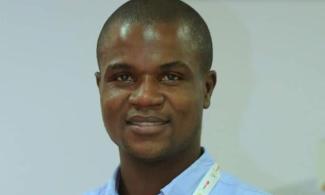
In recent times, the discourse surrounding social media regulation in Nigeria has gained momentum, raising concerns about its potential implications on fundamental human rights. The statement by Femi Gbajabiamila, the chief of staff to President Bola Tinubu, to regulate social media is not just a matter of policy but a fundamental challenge to the democratic principles and human rights of Nigerian citizens.
Social media platforms have become integral to the fabric of modern society, especially in democracies. They serve as crucial avenues for free expression, public discourse, and the exercise of democratic rights. In Nigeria, these platforms have played a pivotal role in facilitating participatory governance, enabling citizens to engage with political processes, express dissent, and hold those in power accountable.
It is worth noting that social media played a significant role in the electoral success of the All Progressive Congress (APC) in the 2015, 2019 and 2023 elections. The ability to connect with voters, disseminate information, and mobilize support through these platforms underscored their importance in shaping the political landscape. Any attempt to stifle or regulate social media would not only undermine these democratic processes but also infringe upon the rights of Nigerian citizens.
At a time when Nigeria is grappling with myriad challenges, including economic hardship, insecurity, and poverty, the focus should be on addressing these pressing issues rather than restricting freedom of expression. The government's resources and efforts should be better directed towards tackling the root causes of these problems and improving the lives of its citizens.
The right to freedom of expression is enshrined in Section 39 of the 1999 Constitution of the Federal Republic of Nigeria (as amended). This constitutional provision guarantees every Nigerian citizen the right to freely express their opinions, thoughts, and ideas without fear of censorship or reprisal. Additionally, Nigeria is a signatory to the African Charter on Human and Peoples' Rights, which reinforces the right to freedom of expression under Article 9(2) of the African Charter on Human and Peoples’ Rights (Ratification and Enforcement) Act (Cap A9) LFN, 2004.
Any proposal to regulate social media must be scrutinized in light of its compatibility with the fundamental human rights. The failed attempt to pass such legislation under the previous administration of President Muhammadu Buhari serves as a reminder of the constitutional safeguards in place to protect fundamental rights. Any deviation from these constitutional principles would not only be undemocratic but also unconstitutional.
It is imperative that we resist any attempts to curtail freedom of expression and muzzle civil society under the guise of social media regulation. The right to freedom of speech and expression is enshrined in international human rights instruments and is fundamental to the functioning of a democratic society. Any infringement upon this right poses a threat to the democratic values and principles that Nigeria aspires to uphold.
Social media regulation could have far-reaching implications for journalism, activism, and civic engagement in Nigeria. Journalists rely on these platforms to report on events, hold power to account, and amplify marginalized voices. Activists and civil society organizations utilize social media to mobilize support, raise awareness, and advocate for change. Any restriction on these activities would undermine the vibrant civil society that is essential for a healthy democracy.
The proposition to regulate social media in Nigeria represents a significant threat to human rights and democratic principles. It is incumbent upon the government to uphold its constitutional obligations to respect and protect the rights of its citizens, including the right to freedom of expression. Any attempt to undermine these rights must be met with steadfast resistance from all sectors of society. Nigeria's democracy and the rights of its citizens must not be compromised in the name of regulation.
Wale Bakare is a Digital Rights and Digital Inclusion Advocate, Co-founder/Director of Partnership and Sustainability, Webfala Digital Skills for all Initiative.